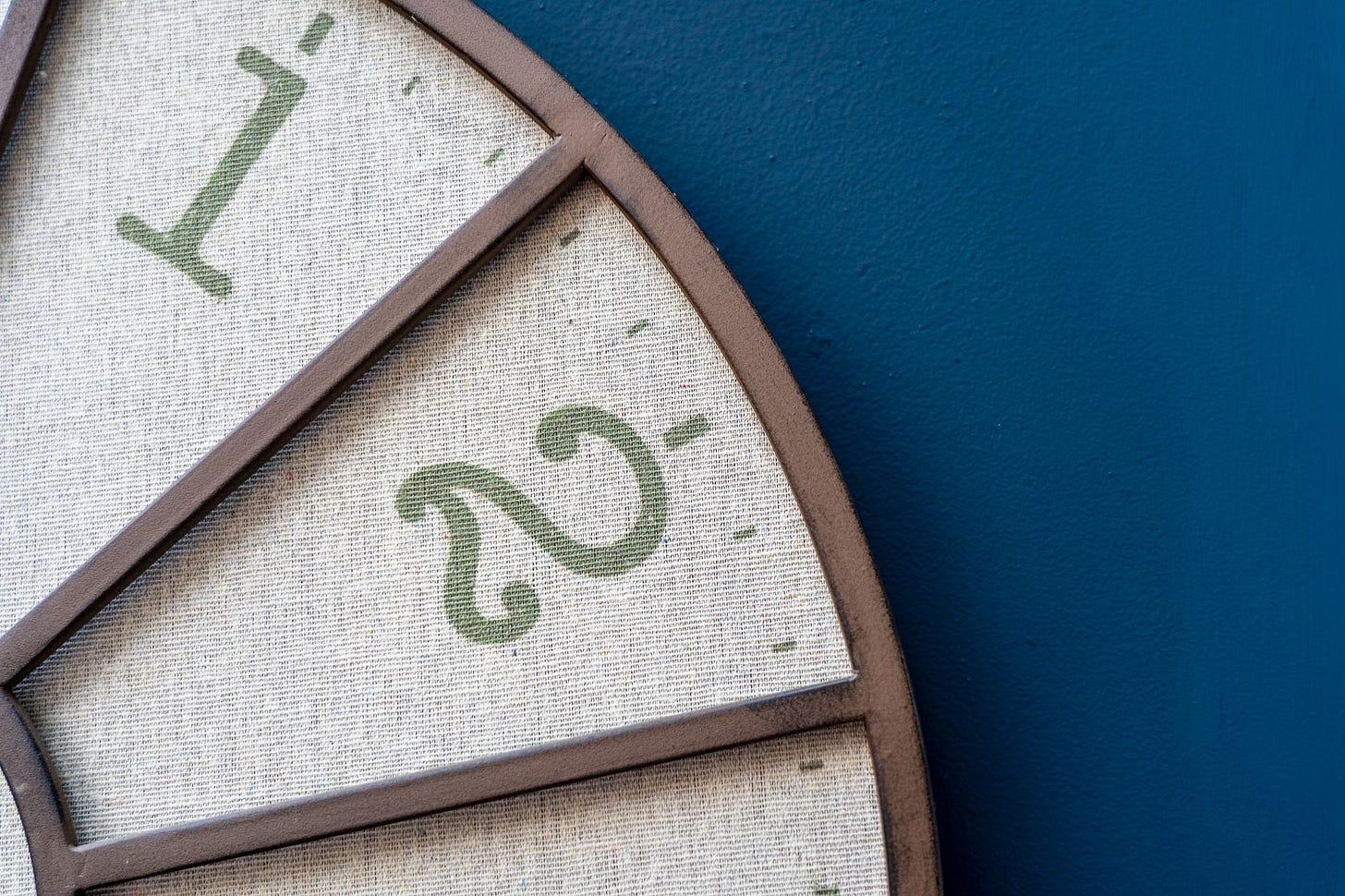What If You Could Work Only One Hour a Day?
If you had to radically reduce your time spent on work, how would you handle it?

One time I had bronchitis, and it lasted for more than a week. I spent a good portion of each day sleeping—and probably a fair amount of each day complaining about being sick.
Of course, I still had to work some of the time. My energy level was constantly low, but every so often I’d muster enough strength to trudge through a few tasks or half-heartedly reply to messages before crashing on the couch for another long nap.
Sometime around then is when I thought of the question:
“What if I physically couldn’t work more than one hour a day?”
In this scenario, the hour-a-day workload isn’t a benefit, designed to set you free to sit on the beach all afternoon or whatever it is people think of doing when they aren’t at work. Instead, it’s a requirement. You get one hour to do your work, no more. After your hour of power concludes each day, you have to wait another 23 hours before resuming.
Without a doubt, I realized that this would be a big problem for me. I was already struggling with keeping up with what I’d taken on while I was healthy and energized. If I had to reduce the available time to a single hour a day, I’d need to make much more radical choices.
Most of all, I’d have to face the classic creator’s dilemma:
1. Do a bunch of things somewhat well (but nothing really well)
2. Do one thing really well
And I wouldn’t want to choose! It would be … a tough choice.
At the same time, it might lead to some sort of breakthrough. By working such limited hours, I’d have to get much better at separating non-essential work from the key things that truly mattered.
Fortunately, I made a full recovery from my bronchitis week. But every once in a while since then, I’ve been thinking about the challenge and potential benefit of such a strict limitation.
If you had to work only one hour a day, and could do no more—how would you spend it?
Note: You could also consider this thought exercise with non-work activities, or with any other amount of time. What if you had to fit in a workout in less than 15 minutes? What if you had to plan a big trip, and instead of researching options for weeks, you gave yourself a two-day deadline to have everything booked?
You get the idea. Constraints can be helpful in helping you avoid using all the time available to you.






Constraints on what you can and can’t do clarify what’s of utmost importance in life. Disabilities are a gift in this regard.
I fell off a 13-foot-high rock when I was six. I’m lucky I lived. I put my right arm out to break my fall, and the bone in that arm broke so extravagantly it came out of my skin into the air. I’m here to tell you that when bone and air make contact, a black hole of pain ensues!
I broke about five bones that day. The main bone that broke through my skin was so mangled, the story goes that “it took the biggest person in the hospital pop it back in place!” Not a finesse job, apparently.
When the bone was “popped back in place,” it was not correctly lined up, rotationally, and when my arm healed, I lost about 80° of rotation in my right arm. Since I’m right handed, what this means is that I can’t turn my right arm flat like a normal person, which means:
-I can’t use a normal computer keyboard. I use a vertical keyboard.
-I can’t use a normal mouse. I use vertical mice or track pads.
-I can’t do things like empty my dishwasher, because the tiny movements strain my arm so much that I get pain if I do it on a daily basis.
-There’s just about no sport I can participate in, because most sports use some kind of stick or ball — tennis, baseball, lacrosse, basketball — which is incompatible with my arm’s capacities and the pain that would ensue. (I also have knee issues which makes running a problem as well, so soccer and other non-arm sports are out also.)
-I can’t play musical instruments for the same reason. I had a gorgeous traditional Korean hourglass jang-gu drum once, that I had someone bring back from Korea. I loved playing it with all my heart, but the pain was prohibitive. I had to sell it, so sad!
It’s taken many hours of therapy for me to accept all the limitations that have arisen as a result of losing 80° of rotation in my right arm. Because of these limitations, many activities are dead ends for me.
I deeply wanted to play the piano, but that’s completely impossible — a piano keyboard is a horizontal proposition just like a computer keyboard, and there’s no chance I could interact with it without serious pain.
Inside, I’m a musical, athletic person who would love to spend my time playing instruments and sports. But those things are almost completely prohibited because of my arm. This has forced me to go deeper inside myself, and focus on my mystical proclivities.
Despite the grief of losing these avenues of self-expression, in the long run, I see my disability as a gift because it’s forced me to focus even more deeply on my inner work.
Limitations create the freedom to focus very deeply on the most valuable things, and to do the grief work of letting go of more than you thought you could ever let go of.
I now try to live by the rule “If it’s not a nine out of ten, it’s a zero.“ If something isn’t a nine out of ten in terms of the level of satisfaction and meaning it gives me, I try to eliminate it. It’s a super tough standard to live by, but because I’ve done so much work accepting the many limitations caused by my disabilities, it’s become easier over time.
I don’t wish physical limitations on anyone. But we live in a world with gravity, and few of us get to adulthood completely unscathed! Accepting the limitations disabilities bring us = accepting the gifts of trauma.
As a severe trauma survivor, I know that there is nothing that’s all good or all bad. Every trauma, every limitation, also carries the seed of a certain power and liberation for us, if we have the time, resources and privilege to unpack it.
As Mary Oliver said in “The Uses of Sorrow”
Someone I loved once gave me
a box full of darkness.
It took me years to understand
that this, too, was a gift.
I do this all the time with chores I don’t want to do. I give myself x minutes to do y. Example, 15 minutes to clean the kitchen.
But the real issue is paid employee work. I’ve been working a long time, in different functions. I am questioning everything including the concept of an eight hour day. If I can zero in, plan, organize something in an hour or two and execute, that most people could never do, what is that two hours really worth?